
Tales of Child Soldiers
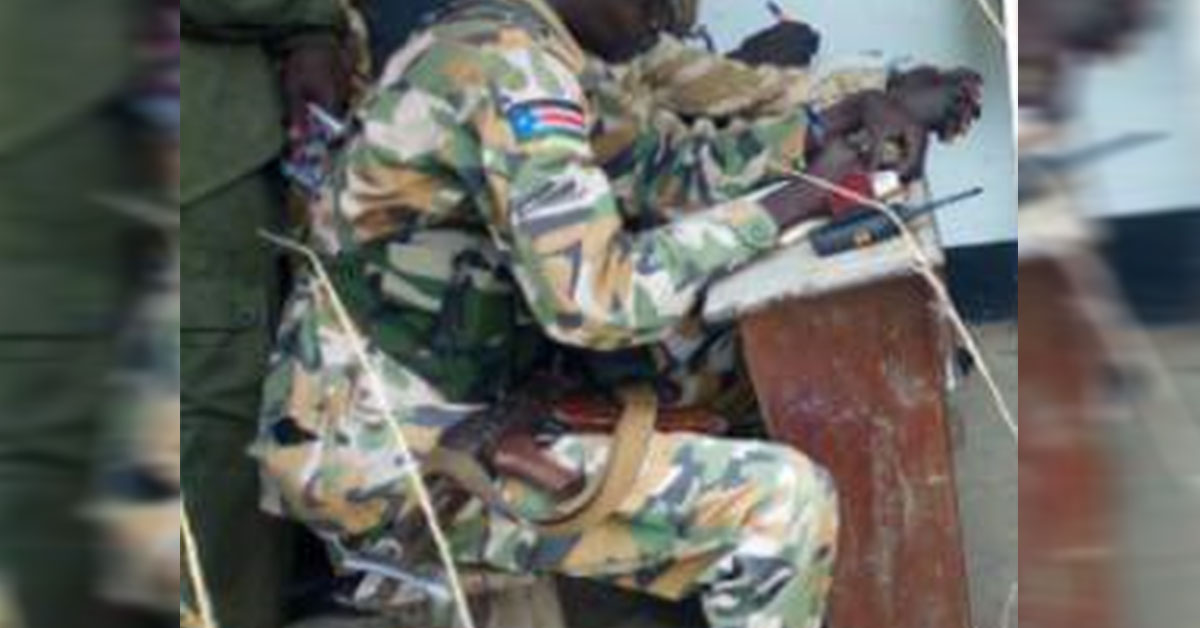
By Wani Isaac Kenyi
“We faced a lot of brutalization. We were beaten thoroughly especially when you had done something wrong. We would sleep without food on most occasions.” Mabior * a former child soldier, recalls.
Now in his last year of Secondary education in Bor, an emotional Mabior recalls how he ended up as a child soldier after the pain of seeing a loved one killed in a war that he wasn’t part of. He was also part of a mobilization scheme in the name of a better life by powerful community leaders, used by powerful army officers, with a promise to fight the poverty they had lived in.
“It however turned out different,” says Mabior, who chose to go back to school to pursue his dreams of becoming a journalist.
“Numerous times we were sent to slash grass and chop down some trees for building houses. Occasionally, we were taken to the trainers’ bases to cook and fetch water for them. The pain and the suffering my family went through was so much,” he told The Insider.
Mama Rebecca Ajah, who lost six kids to the war, is still battling terminal illnesses including high blood pressure and diabetes.
Beyond the growing grief of the loss, Ajah says that the persistent recruitment of children has created an atmosphere of fear and anxiety among parents regarding those not yet dragged into the armed forces.
She claims that the bigger challenge is when the children return home; reintegrating them into the community and the family setup would even be more challenging due to the change in behavior.
“When my children and my nephews came home from the armed forces where they served as child soldiers, they had completely changed. They resorted to alcoholism and smoking bhang [marijuana]. They also struggled with a lot of psychological issues and are never at peace,” she added.
Furthermore, the violent recruitment leaves behind trails of death for parents who try to resist. Some parents say they are helpless in the face of an attack from armed abductors and sweet-talking community leaders
However, John*, a former soldier blamed poverty and irresponsible parenting in the drive by children to join armed forces in South Sudan.
“Yet, life there is not easy either. We would go for days without any food or drink. Often we slept in temporary and small huts that leaked and even under trees,” he adds.
The Spokesperson of the South Sudan People’s Defence Forces (SSPDF) Major. Gen. Lul Ruai Kong states that currently, the SSPDF does not have child soldiers in their ranks and files of the army. He claimed that the opposition armed forces were the ones involved in the recruit and use of child soldiers.
However, Gen Kong admitted that SSPDF had child soldiers in their ranks between 2013 and 2017 but demobilized and released fifteen child soldiers with the support of International Committee of the Red Cross (ICRC) and United Nations Children Fund (UNICEF).
“With The Revitalized Peace Agreement security arrangement there is a mechanism in place to disarm, demobilize and reintegrate child soldiers and reunite them with their families,” he told The Insider.
It is undeniable that the warring parties actively used children as soldiers during the conflicts of 2013 and 2016 as the deputy spokesman for Sudan’s People’s Liberation Army in Opposition (SPLM/IO)
Col. Lam Paul Gabriel, who is now the spokesperson of South Sudan’s Defence Ministry, confirmed the presence of children in their ranks.
“We have these kids that have been with us. They were caught up in a situation. They didn’t want to join the military but the situation forced them to join and defend themselves against the attacking forces.” Lam added saying “when they are subjected to an attack by either opposition or government forces, they have to defend themselves because if they get caught,
“In war, people don’t care whether they are children or not. As long as they were found in the battlefield, they were killed. What we tell them to do is that if you can defend yourself well and good but this is not your war but with peace signed it’s time to send them home to their families, “Said the Col Paul.
Dr. Akim Ajith, the Director of Public relations at the Dr. John Garang Memorial University in Bor explains that parents become distressed and when the children return home as they get involved in a lot of violence causing fear to others.
“Seeing a dead body at a tender age causes a lot of trauma to the child soldiers. Witnessing people being killed is also not easy. Reintegration itself is one of the hardest things especially since some of them become rigid to change.” he narrated.
He hailed the efforts of the interventions by the government partners who are raising awareness on the matter. He noted the urgent need to educate and inform the local communities in the rural villages about the advantages of the recruitment of children for them to stand against this practice.
Mr. James Auyen, the Focal Person for Child Protection at the Jonglei State Ministry of Gender and Social welfare narrated that Ministry officials visit the Malual Chaat military barracks twice a week to monitor if children are enrolled in the army.
Auyen says his Ministry is exerting a lot of effort on this issue with other partners like UNICEF, Save the Children, CIDA, UNMISS, and others.
Mama Kuei, a businesswoman at the Maror market in Bor expressed her disappointment with the recruitment and use of children as child soldiers.
“I pray that the regional bodies including the United Nations and the African Union intervenes and rescue our children’s lives,’’ she adds.
John Garang Goch, the chairman of Jonglei Civil Society Network, called on the government to address the issue of children holding guns.
“We have brought these discussions to the table especially on radio. In addition, we are appealing to parliamentarians to have round table meetings on this matter, to see how we can address them effectively,” He added.
The Minister of Jonglei State Ministry of Information and Communication Hon. Atong Kuol urged the media to come up with programs to further educate the general public on the issue of the recruitment and use of children as child soldiers in the country.
“The media should come up with programs supporting children to go to school,” she affirms.
Recruiting and using children as child soldiers is a violation of the UN Convention on the Rights of Children Article 32, the African Charter Article 16 and the South Sudan Child Act 2008.
This violation is punishable by national and international instruments like the International Criminal Court (ICC). Recruiting and using children as child soldiers is one of the six grave violations according to the United Nations (UN).
Former Liberian President Charles Taylor, appeared at the ICC for war crimes and one of the charges against him was child recruitment and in charge of nine of his sentences he was indicted for “Conscripting or enlisting children under the age of 15 years into armed forces or groups or using them to participate actively in hostilities”. Charles Taylor is now serving a fifty-year prison term for war crimes and other crimes.
Thomas Lubanga the former Congolese warlord was found guilty by the ICC, on 14 March 2012, of the war crimes of enlisting and conscription of children under the age of 15 years and using them to participate actively in hostilities”.
Moreover, the UN Security Council Resolution 1612 affirms six grave violations in which five of them are related to children namely “killing and maiming of children, recruitment and use as soldiers, sexual violations against children, abduction of children and attacks on schools and hospitals.”
A violation of any of the above mentioned could attract sanctions or other punitive measures by the international community to violators.
Therefore, stopping the recruitment and use of children as child soldiers and placing South Sudan’s children agenda in the center of our national peace and security agenda would guarantee the protection of the rights of our children that is envisioned and enshrined in our Transitional Constitution of South Sudan 2011 and the Child Act 2008.
Whereas, the African charter on the rights and welfare of children which South Sudan is a signatory to, stipulates in Article 16 that “Children should be protected from all forms of torture, inhuman or degrading treatment and especially physical or mental injury or abuse, neglect or maltreatment including sexual abuse”.
According to a report by UNICEF during the release of child soldiers from opposition armed groups in July 2019, nineteen thousand children are being used as soldiers since 2013 and only 3,143 children released have been supported by UNICEF.

















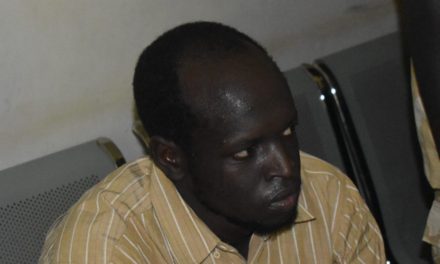
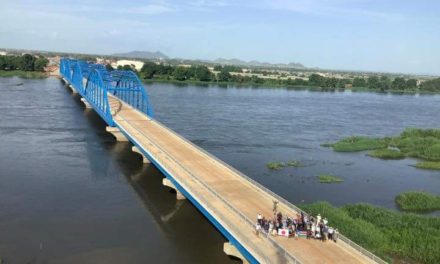
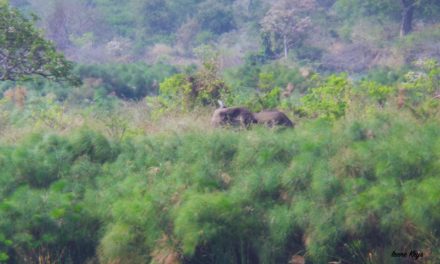
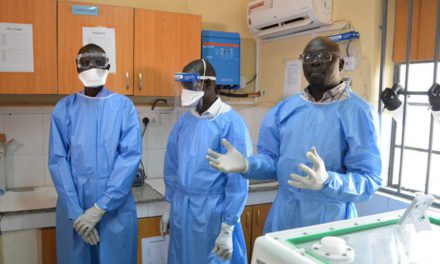
Recent Comments